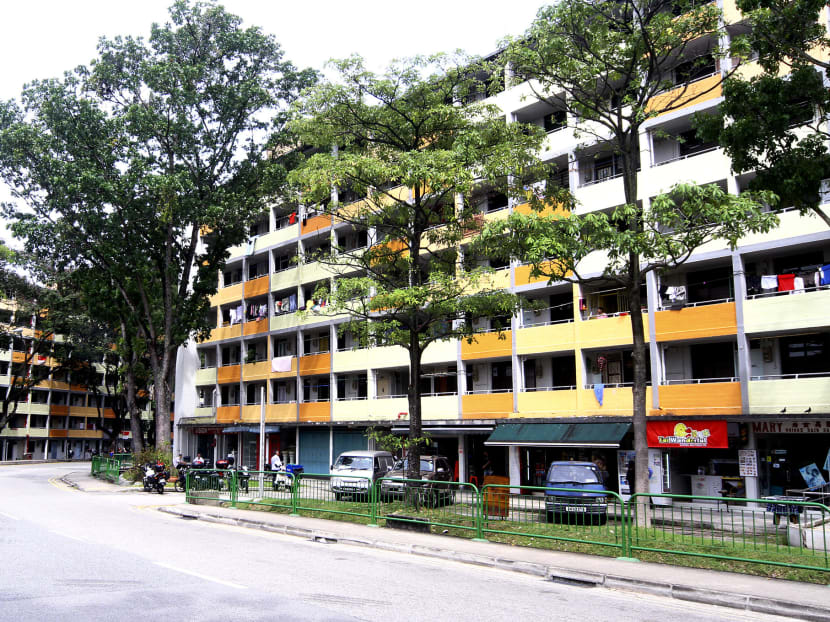Low-income families with housing problems need more help, social workers say
SINGAPORE — When it comes to helping clients with housing problems, some social workers feel they are not able to do enough to help, and many see their clients as victims who could do with more policy flexibility.
SINGAPORE — When it comes to helping clients with housing problems, some social workers feel they are not able to do enough to help, and many see their clients as victims who could do with more policy flexibility.
This was one of the findings from a study involving 35 social workers from six family service centres, and it was shared on Thursday (April 21) at the National University of Singapore’s Social Service Research Centre’s annual conference, which looked at the challenges of working with low-income families in Singapore.
Social workers pointed out that where housing policies are concerned, the income ceiling that qualifies one for rental housing, the extent of increase in rentals once a dweller crosses an income threshold, and the requirement for strictly defined family units could be tweaked to help more in the lower-income group, for instance.
A minority of social workers who took part in the study wanted a bigger rethink of housing policy assumptions, such as the allocation of only one- or two-room rental flats, regardless of family size.
In presenting their findings on Public Rental Housing In Singapore: Policy Options and Professional Perceptions, co-researchers Ng Kok Hoe and Neo Yu Wei said the social workers also suggested longer-term financial help and advice for low-income families, especially in the selling, renting and buying of flats.
Having a secure home is a major challenge for the low-income, and the researchers had wanted to examine how social workers perceive their clients who live in rental flats or face housing issues, since they are at the frontline to offer help.
The options available to this income group are not plenty. About 6 per cent of the public housing stock from the Housing and Development Board (HDB), or about 53,000 units, are rental flats, while the remainder are sold flats.
Transitional shelters have capacity for about 150 families, while interim rental housing consists of about 500 units, the researchers said.
The Fresh Start Housing Scheme recently announced by the Government could help about 1,000 families — basically those who have sold their own flats and moved into rental ones, and are ineligible for first-timer housing grants when they want to be home-owners again.
Assistant Professor Ng, who is from the Lee Kuan Yew School of Public Policy, said it was quite common for social workers interviewed to feel they were unable to help clients facing housing problems adequately.
They would mostly write appeal letters to the HDB or to Members of Parliament, or head to HDB branch offices with their clients, he said.
Housing was a recurrent topic at the conference, which also covered the effect of debt-relief and poor health on low-income households, their added struggles in work-life balance, and the challenges faced by transnational families.
Attending the event at the National University of Singapore were about 320 social work professionals, academics and civil servants. Mr Kuo How Nam, president of Credit Counselling Singapore, who was there, suggested that home-ownership may not be the best option in certain situations, especially in a time of economic restructuring and greater uncertainty.
“When you buy a home, you are basically making a very long term financial investment that requires that you be in continuous employment for something like 25 to 30 years. Sometimes not only you, but your wife as well,” he said. “So what I think we need to look at is a change of the mind, a paradigm shift, not necessarily (thinking) that owning your home is the right thing to do at certain times.” Another study presented was the effect of debt-relief on low-income households, done in conjunction with an initiative last year by Methodist Welfare Services to provide one-time debt-relief to hundreds of households.
About three months after the debt-relief, the beneficiaries were found to have reduced symptoms of generalised anxiety disorder, improved cognitive functioning, and a greater shift towards risk-seeking behaviour.
Co-researchers Ong Qiyan and Walter Theseira said that whether debt-relief brings more harm than good remains to be seen, and that its effects in the longer run would be studied.










